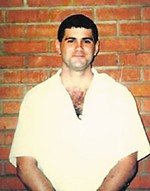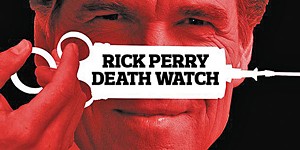Who to Blame for Faulty Fire Science?
Will Forensic Science Commission let Fire Marshal's Office off the hook for flawed science?
By Jordan Smith, Fri., July 30, 2010
Willingham was executed in 2004 for the alleged arson murders. In 2006, the New York-based Innocence Project asked the nascent FSC to review the work of arson investigators in the convictions of both Willingham and Ernest Willis, whose conviction for arson in a separate case was ultimately overturned. Willis was released from death row just eight months after Willingham was executed. Multiple fire-science experts have said that the investigations in those cases were flawed, included Craig Beyler, who wrote in a report requested by the commission that the science used in Willingham's case was wrong.
At the commission's July 23 meeting, Innocence Project Co-Director Barry Scheck got into a heated exchange with Williamson County District Attorney John Bradley, who chairs the commission. Scheck protested that the commission should be focusing on whether the State Fire Marshal's Office had been negligent both in relying on science it knew was flawed and in not telling Willingham's prosecutors about the flawed techniques used to conclude that the fire at his home was arson. Scheck argued that the fire marshal's office, which ultimately adopted new fire standards, had an "obligation to go back and notify prosecutors" in individual cases that their experts could "no longer stand behind" their original testimony in the cases. (Always the charmer, Bradley retorted that Scheck was simply interested in being on camera and creating "drama.") The question of negligence is exactly what Innocence Project board member Sen. Rodney Ellis, D-Houston, said the commission should be considering. "The Commission is off track in terms of what it should be investigating," he said in a statement. "It was painfully apparent that many FSC members believe that flawed science was used in the Willingham conviction, but the FSC does not seem interested in looking at the bigger picture: When did the State Fire Marshal start using modern arson science and did the State Fire Marshal commit professional negligence or misconduct when it failed to inform the courts, prosecutors, the Board of Pardons and Parole, and the Governor that flawed arson science had been used to convict hundreds of defendants?"
The commission said it will accept public comment until Aug. 12 (for information on how to contact the FSC, check www.fsc.state.tx.us). The commission will then draft a final report for consideration at a meeting slated for October.
Got something to say on the subject? Send a letter to the editor.










